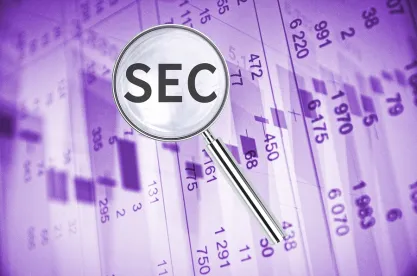The SEC has expanded the definition of accredited investor to modernize it and enable more investors to access private offerings. “Accredited investor” is defined in Rule 501(a) of Regulation D under the Securities Act of 1933. Regulation D exempts from SEC registration certain securities issued in private offerings that meet the requirements of Regulation D. The expanded definition includes the following:
-
Adds a new category to the definition that permits natural persons to qualify as accredited investors based on certain professional certifications, designations, or other credentials from an accredited educational institution that the SEC has designated as qualifying an individual for accredited investor status;
-
With respect to investments in a private fund, includes natural persons who are “knowledgeable employees” of the fund;
-
Clarifies that limited liability companies with $5 million in assets may be accredited investors;
-
Adds SEC- and state-registered investment advisers, exempt reporting advisers, and rural business investment companies to the list of investors that may qualify as accredited;
-
Adds a new category for any entity that owns “investments,” as defined under the Investment Company Act, in excess of $5 million and that was not formed for the specific purpose of investing in the securities offered;
-
Adds “family offices” with at least $5 million in assets under management and their “family clients,” as each term is defined under the Investment Advisers Act; and
-
Adds the term “spousal equivalent” to the accredited investor definition, so that spousal equivalents may pool their finances for the purpose of qualifying as accredited investors.
These changes take effect 60 days after publication in the Federal Register.





 />i
/>i

